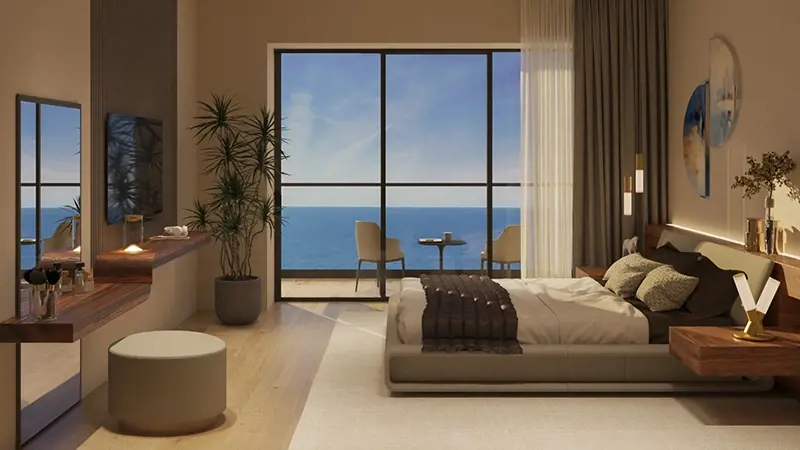Top 5 Reasons Investors Now Choose Batumi Real Estate Over Other European Resorts
#Other
For decades, investors followed a straightforward calculus for European property. In what is basically investment gospel 101, there’s an established gold standard that you just aren’t allowed to doubt. Think of the Spanish coastlines or Italian tourism hubs like Lombardy and Tuscany, or Montenegro’s turquoise bays. Markets equate them with luxury, lifestyle, and—what’s most important—historically stable returns.
But investing in them can be a double-edged sword: investors who focus on data-driven value are increasingly recognizing the limits of mature markets. Popularity and name recognition have pushed prices to their peak, compressed rental yields, and, as of now, left little room for significant growth, especially in the current shaky economic climate.
This has motivated them to search for a more dynamic alternative—a market offering both a desirable lifestyle and a compelling financial case—and led smart money people to invest in Batumi. In the last half a decade, the city emerged as a premier strategic alternative to major European resorts. Batumi currently offers a really optimal combination of value, strong growth rate, and an unapologetically investor-friendly framework. And we’re not extrapolating based on a few anecdotal cases here; the trend is validated by international recognition, including the prestigious World Travel Awards recently crowning Batumi the "World's Leading All-Season Destination 2024" over Geneva, Munich, and Oslo.

Reason #1: The True Value of the Price-to-Quality Ratio of Batumi Real Estate
The most immediate and quantifiable advantage you'll see when digging into the Batumi real estate market is the theoretical value proposition. As anyone who’s checked out the Mediterranean prices (and then had to take a few bracing breaths to calm down their pounding hearts) would tell you, what your capital can acquire in Batumi is kinda mindblowing. It’s not just property being "cheaper"; it’s about the sheer volume of high-quality, modern, sea-view real estate you can own for a fraction of the cost elsewhere.
According to a comprehensive market analysis by Galt & Taggart, an average realistic price for a new-build, high-quality apartment with a sea view in Batumi is approximately $1,500 per square meter.
Here’s how that stacks up against Europe’s established resort towns, based on data from leading property analysts like Engel & Völkers and Immobiliare.
|
Location |
Average Price ($/m²) |
Capital Required for 60m² Apt ($) |
|
Batumi, Georgia |
~$1,500 |
~$90,000 |
|
Budva, Montenegro |
~$3,000 |
~$180,000 |
|
Marbella, Spain |
~$5,000 |
~$300,000 |
|
Amalfi, Italy |
~$7,500 |
~$450,000 |
|
Prices are estimates for new-build, sea-view apartments as of mid-2025. |
According to this data, your capital can acquire between three and five times more physical property in Batumi compared to other major resorts. The ~$450,000 needed for a small 60m² apartment in Amalfi could theoretically secure a portfolio of five such apartments in Batumi. This incredible disparity in Batumi real estate prices creates a much longer "runway" for capital appreciation.
Reason #2: A Dynamic Growth of Batumi Market: High Yields in an Era of Stagnation
The entry price is just the intro to the story. The real meat is the deliverables. Batumi has what cash-flow-focused investors want the most: ROI. While rental yields in many established European hubs have dwindled to low single digits, Batumi has shown consistent high performance that grows year to year.
According to the Galt & Taggart June 2025 report, the average rental yield in Batumi was a nice, clean 8.6%. This figure outperforms other European cities in the same report, such as Budva (5.5%) and Lisbon (5.9%). Further market data calculates Marbella’s average yield at just 4.98%. Analyses show net rental yields ranging from 8% to 12% in Batumi’s rapidly growing aparthotel and branded residence sector, with some well-managed vacation rentals achieving returns as high as 15%. This strong performance has caught the eye of the global financial community, with Forbes naming Batumi one of the top European cities for investment.
For investors looking to capitalize on these returns, the branded residence model has become a particularly effective strategy. One of the real estate projects by Archi, Ramada Encore by Wyndham, is capitalizing on this trend, partnering with a globally recognized hotel brand to leverage a worldwide marketing and reservation system.
Reason #3: No Red Tape for Foreign Ownership in Batumi, Georgia
Capital, like water, flows along the path of least resistance. In international real estate, that path is defined by legal simplicity and low taxes. The Georgian framework is uniquely welcoming to foreign investors, which is a stark contrast for anyone who’s ever had to face the bureaucratic hurdles and high tax burdens common in the EU.
The process of acquiring real estate in Batumi, Georgia is just efficient and quick. A foreign national can freely purchase property with just a valid passport, and the ownership registration is typically completed within a few business days for a nominal fee. This simplicity, paired with an exceptionally favorable tax environment, is a strong motivator for Batumi real estate investment, especially when compared to the experience of a non-EU investor across EU countries.
|
Factor |
Georgia |
Spain (non-EU) |
Italy |
Montenegro |
|
Key Bureaucracy |
Passport Only |
NIE Required |
Codice Fiscale |
TIN Required |
|
Purchase Tax |
0% |
6-10% |
9% |
3-6% |
|
Annual Property Tax |
0% - 1% |
0.4-1.1% |
Varies |
0.1-1% |
|
Rental Income Tax |
5% |
24% |
Varies |
9% |
The 19-percentage-point difference in rental income tax between Georgia and Spain is particularly striking, representing a massive long-term advantage for an investor in Batumi. You can read our in-depth blog about the subject, if you wish to learn more about real estate in Georgia.
Reason #4: Enter the Global Brands
Skeptics often point to quality as the weak spot in emerging markets. After all, how long the building maintains its quality and looks determines how it maintains/increases its value.
In Batumi, a handful of developers have chosen to use reliable European brands as a tool to not only guarantee construction quality, but to boost their reputation. By bringing in European materials and building standards, they’re raising the bar while giving the buyers an additional motivator to say yes to the sale.
Let’s break down how this manifested in the Archi Ramada Encore by Wyndham, for example. The project uses German-made Ytong aerated concrete blocks—well-known for their insulation, strength, and fire resistance. Better insulation alone can shave as much as 40% off heating and cooling costs, a benefit that shows up in monthly bills, not marketing brochures. Interiors are finished with Caparol paints, another German name known for durability and low emissions—the sort of detail that adds up over years of use.
Then there’s the Wyndham connection itself. A global hotel brand doesn’t put its name on a building without strict oversight. Every detail—from safety systems to finishing standards—is audited. For an overseas investor who can’t check in on construction every week, that stamp of approval acts like a safety net.
The rise of premium, carefully built Batumi apartments marks a real turning point. These aren’t quick-build holiday lets but assets designed to last. For buyers, that means fewer headaches, stronger resale value, and more reliable long-term returns.

Reason #5: The New Tenant: Batumi's Rise as a Year-Round Expat Hub
Not that long ago, Batumi’s housing market rose and fell with the tourist season. Apartments filled quickly in July and August, only to sit vacant once the beaches emptied. That picture has changed. Today, the city is attracting a very different mix of tenants: digital nomads working from laptops, expats looking for a less conventional base, and international investors searching for stronger returns on capital.
Several forces are driving this shift. Remote work has gone mainstream, with more than 40 million professionals worldwide now free to choose where they live. At the same time, the rising cost of living in many Western cities is pushing people to look elsewhere. Add in more mobile, high-earning “dual income, no kids” couples and the ease of low-cost air travel, and Georgia’s appeal becomes clear. The country has also done its part, offering citizens of 95 nations visa-free stays for up to a year. For freelancers, the incentive is even stronger: register as a small business and global earnings up to roughly $165,000 are taxed at just 1%. Few countries combine that level of openness with such low costs.
The impact on property markets is already visible. In Batumi, rents in central districts have jumped 30–40% since 2022, not because of seasonal tourism but because long-term tenants are anchoring demand year-round. That shift turns the city’s housing stock into a genuine buy-to-let market rather than a seasonal gamble.
This trend isn’t limited to the coast. Investors are also looking at the ROI in Tbilisi real estate, where similar forces are at play. The capital remains Georgia’s business hub, and the influx of remote professionals has added resilience to its rental market.
At the same time, others see opportunity in Tbilisi apartment investing as a way to diversify. Batumi offers lifestyle appeal and high rental yields; Tbilisi provides economic gravity and long-term stability. Together, they form a complementary strategy for anyone considering Georgia as a serious real estate investment destination.







